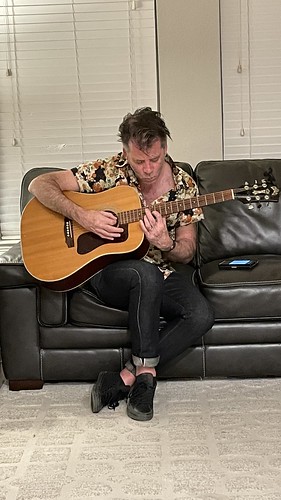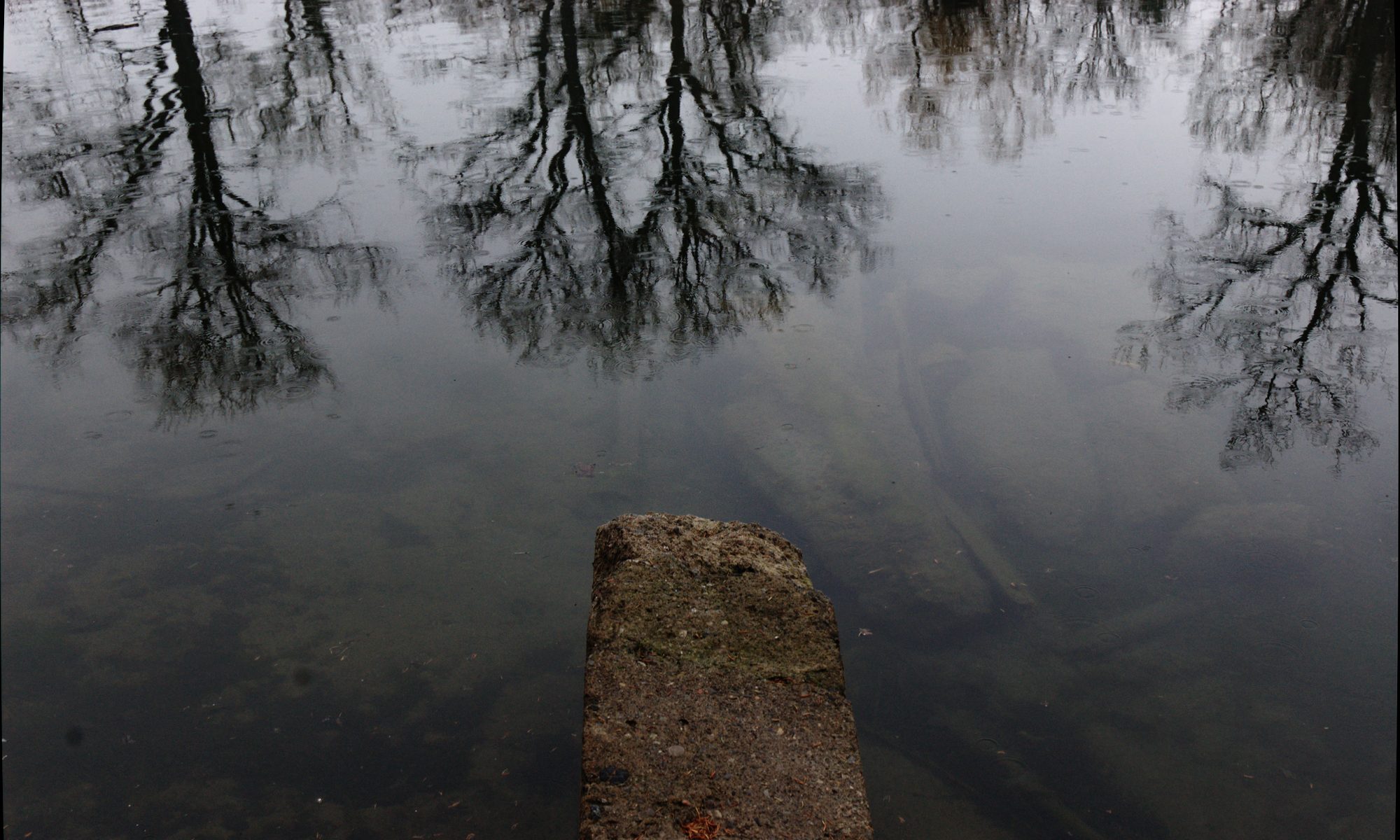I wrote this essay last year, anticipating that my choice of having a Black protagonist in my novel Radioland might be met with curiosity (or criticism) about the nature of that choice. What actually followed was complete silence on this topic, save for when I eventually spoke with Steven Beattie for his That Shakespearean Rag site (subscriber only). I wish I’d been better able at that time to communicate some of what I wrote here, but I was battling exhaustion at the time and that’s just the way it goes with interviews. I’ve made some mild revisions to this, but otherwise it’s what I wanted to say.
The title comes from a fortuitous moment where I happened upon visual artist Shary Boyle, leading a presentation of her latest works at the Gardiner Museum to a group of U of T students last year. “Making art is hard,” she said, and followed it by imploring those paying attention to not rely on curators or critics to summarize their work; that it was important for artists themselves to put something out there — a statement, an explanation, a proposition — for the record, before other people do that for you.
####
Making Art is Hard
Making art is hard. It doesn’t always need to be, but if you’re trying to get a handle on the complexities of our world – let alone articulate them – I feel there’s no room for those who don’t have a personal stake.
When I set out to write Radioland, I did so as I’ve done before, with a focus on moving beyond only telling a story, or rather, to tell a story of people with an eye to those who inhabit the place I live. That place, as much a character as any other, is Toronto, where I’ve made my home since 1995. This city is a lot of things, with a distinct history of its own. Like other major cities in North America, it shares a deep and often troubling history of disrupting the lives of its citizens, mostly working class.
I wrote my first novel, The Society of Experience, as someone making sense of a bustling but dark, often cold city where power was seemingly held by a tiny coterie who may as well have been in a secret society; a blend of the Family Compact and The Theosophical Society, if you will.
Downtown Toronto in the 90s, to borrow a phrase from my editor, was as white as cream cheese. The news was written by white people from a middle to upper-middle-class white perspective (which it largely still is). The people who wrote my paycheques were white. I started in TV commercials which were uniformly white. And white inherited wealth ruled the roost (which it still does). Hell, in the 90s you could get by as exotic if your parents were from Eastern Europe. That white. I worked my first TV post-production jobs downtown, and it was rare to see individuals from Black or South Asian communities in those spaces. The politics of racial identity wasn’t in the foreground for me because I was a white guy surrounded by a largely white crowd.
Becoming aware of my white-guy blinders and the default whiteness of our media perspective has happened gradually. I began to notice how public conversations about multiculturalism (its brokering of what gets acceptance in a predominantly white society) were often conducted by panels of white people with a token racialized academic on hand to lend credibility; how it seemed that the same over-educated white people talked about Toronto — its rich tapestry of ethnic identities! — as if commenting on a really good food court they discovered in Markham. As I shifted from film/TV, training to eventually operate in private practice as a psychotherapist, I learned from my program and especially via the lived experiences shared through client work, how the idea of multiculturalism that I grew up with felt more like a form of gatekeeping, essentially regulating whomever was allowed in to respect the established values and hierarchies of white society.
Radioland is, among other things, a novel about the scars of trauma, told within a macabre world that is somewhat stranger and more speculative than our own. It concerns Kris, a white musician having a nervous breakdown as he comes to terms with his experience of sexual abuse as a kid, and Jill, a Black woman who harnesses a strange and ominous form of magic within her, whose power sometimes leaves a trail of destruction. There’s also a serial killer, but let’s not go there.
A significant factor, though not the only, in deciding to change how I approached Radioland came indirectly from none other than J.K. Rowling, author of the vastly popular Harry Potter series, whose public blessing of main character Hermione Granger being Black (reacting to the casting of Noma Dumezweni for a 2015 theatre adaptation) seemed not only a rather oblique after-the-fact bestowment of white acceptance, but, as has been pointed out, rather than taking on the work of making any of her main characters explicitly racialized in her books, readers were left to, very optionally, in the words of the late Doug Henning, use their imaginations. To do the work for her, in other words. There’s a double-standard around a white author suggesting the reader change the landscape of representation, not the author. Reading this exchange, its discourse about power, I also saw my own faults – as someone who grew up in white rural and suburban enclaves — or should I call them defaults. Ultimately, I thought, fuck billionaire JKR, where were my blindspots?
When I started Radioland in 2016 I wanted to describe, and have the novel reflect, the changing Toronto I saw around me. I wanted this complexity and diversity to be reflected in my characters. I wanted it to be about music, magic, and madness; highly sensitive people roaming through and seeking connection in a randomly insensitive world. Alarmed by rapid neighbourhood gentrification and wage inequity worsening around me, I didn’t want to write a novel about people who, for some reason, never seem to worry about rent or bills, let alone debt or uncertain comfort. I didn’t want to put into the world another lie about a rock band “making it” (whatever the hell that means). I wasn’t interested in magic saving someone from the realities of an unfair world; what would it be like, in fact, if magic made it worse?
I wrote this essay because it’s not 2016. It’s 2023, and there is a lot of scrutiny out there; an understandably greater burden on white authors, whether or not they are established, to take more responsibility for what they’re working with when they choose to include characters of colour in their work; readers and authors increasingly want to see diverse, relatable experiences reflected in their media, otherwise it frankly risks irrelevancy. As a white author who chose to make one of his book’s protagonists Black, this required a lot of things. Mostly humility, and knowing I was going to need to do a lot research, as well as meditating on what it means for a white author to choose a Black character (especially a protagonist), what the privilege of that freedom of choice means, and the responsibilities that come with this. And within the portrayal of the character, Jill, not wanting to have a Black protagonist who’s made to speak for all Black people but rather a woman who is her own person, yet doing so without erasing her Black identity, or obscuring the racism she has internalized. Balancing the very real lives of Black people with care not to veer into a monolithic, monocultural depiction, or reducing the depiction into a convenient political tract, perhaps what Naben Ruthnum may have meant by social-betterment fiction.
Specifically in terms of writing from the viewpoint of racialized characters, I came upon some influential works that were helpful. One of them is a piece Jen Sookfong Lee wrote for Open Book focusing on the question: how do I write about race when it’s not my race? Writing advice can be Janus-faced — the opposite is sometimes just as true as the rule sometimes — but her well-considered guidance made me feel, at the very least, that I wasn’t indulging in a disaster. Written for an academic audience (though immediately approachable) there is also Linda Alcoff’s excellent paper, The Problem of Speaking For Others, and the author’s thorough consideration of the many perspectives involved in writing from a racialized perspective. Most recently, Jay Caspian Kang tackled this in response to the release of the film Turning Red.
I didn’t want to be Anne Tyler, who recently underscored how frustrating this is: “I’m astonished by the appropriation issue […] It would be very foolish for me to write, let’s say, a novel from the viewpoint of a black man, but I think I should be allowed to do it.” The big problem is in her use of allow. No one is stopping white authors like Tyler from writing from the viewpoint of a Black man, but, perhaps for the first time, they are feeling liable around liberties previously tolerated; the freedom, yes, but not as trustworthy without some sense of self-reflection on the implicit privileges those of us producing art may bring. As someone put it in simple terms, this is more about consequence culture than cancel culture. And what we’re seeing are white people being asked to take responsibility. To make matters worse this is being manipulated in right-leaning quarters as a form of existential annihilation.
A sensitivity reader was ultimately hired, and I’m humbly thankful for their insights. I had considered hiring a sensitivity reader during an earlier revision cycle, but stalled on the idea as there had been stories of authors hiring SRs only to throw them under the bus, owing to not taking into account the advice they were given and treating their hiring as a sort of de facto sanctification against criticism. There’s a lot of misplaced and defensive rhetoric that has come out with the rise of the sensitivity reader; a cursory search will unfortunately direct you to articles that don’t so much compare but literally call the hiring of SRs a form of censorship. The very notion of people of colour suddenly being in a position to gatekeep (which SRs don’t actually do) scaring the living hell out of white people is revealing enough. But let’s get back to this allegation of censorship. It’s not. Not only is it about continuity and accuracy, but authors and publishers being open to taking more responsibility for what we create. In the notes I got back from the SR, there were no “thou shalts”. I was pointed to some technical things in my manuscript that I simply hadn’t considered — and it was flagged because the reader thought it didn’t make sense, or needed more clarity. Good catch, I thought. In their preface, the words of the SR who read my manuscript are important, too: “[…] that being said, I am only one Black [person] with a specific experience growing up in Toronto.” They were there to be an informed eye. This was not some NYT op-ed’s notion of woke-ism run amok. Should we then be surprised when sensitivity readers, such as the person who read my manuscript, decline to be publicly identified or acknowledged by name?
All of this is not to say that I don’t exclude the possibility I’ll have to take responsibility for what I might not have thought through well enough. Oppositely, it’s not like I’m expecting some sort of special singling out for not setting the default depiction to white. Making art, as I mentioned earlier, is hard. I don’t think art-making is well-served if we’re seeking to float safely above that which we are thoroughly immersed in.





